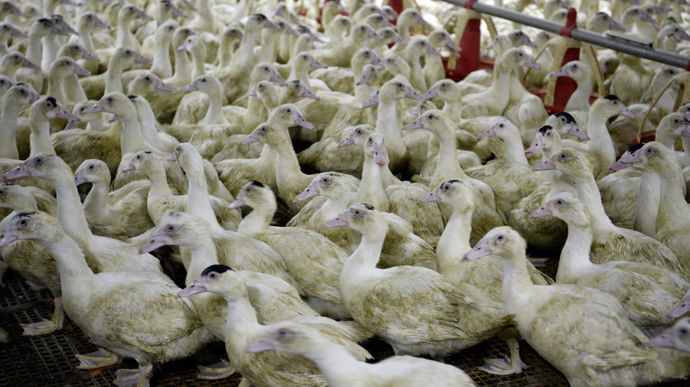Security Under Scrutiny as Louvre Faces New Theft After Infamous 1911 Case
Louvre Heist: Four-Member Commando Flees With Historic Jewels After Seven-Minute Raid
Masked Thieves Execute Daring Louvre Jewel Heist in Broad Daylight
French Actor Pierre Niney's Five-Day Mountain Retreat Sparks Social Media Buzz
Louvre Security Under Scrutiny After Brazen Jewel Theft by Construction-Disguised Crew
Avian Flu Returns to French Poultry Farms as Seasonal Risk Rises
French authorities have confirmed an outbreak of highly pathogenic avian influenza in a duck farm in the Lot-et-Garonne department, marking the latest case as the country enters the seasonal high-risk period for the disease. The prefecture announced on October 17 that the virus was detected in a farm in the commune of Allons, located in southwestern France, prompting immediate containment measures including the planned culling of approximately 2,000 ducks to prevent further spread.
To contain the outbreak, local officials have established regulated zones around the affected farm, implementing a 3-kilometer protection zone and a broader 10-kilometer surveillance perimeter. Within these areas, transportation of poultry and captive birds has been prohibited except with special authorization from the Departmental Directorate for Population Protection. The measures affect multiple communes including Allons, Boussès, Houeillès, Pindères, Pompoigne and Sauméjan, where all poultry holdings must adhere to strict biosecurity protocols.
This outbreak represents the third confirmed case of avian influenza in French poultry farms within days, following earlier detections in duck farms in Seine-Maritime and Pas-de-Calais, and another in a turkey farm in Loire-Atlantique. In response to the growing threat, France elevated its national risk level from "negligible" to "moderate" on October 16, citing increased virus circulation among migratory birds during their seasonal movements across Europe.
Authorities emphasize that consumption of poultry products including meat, foie gras and eggs remains safe for humans, while calling for strict adherence to biosecurity measures across the poultry industry. France's mandatory duck vaccination program, implemented since autumn 2023, has significantly reduced outbreak numbers compared to the 2021-2023 period when the country experienced approximately 1,800 outbreaks requiring the culling of 32 million birds and resulting in billions of euros in losses.
